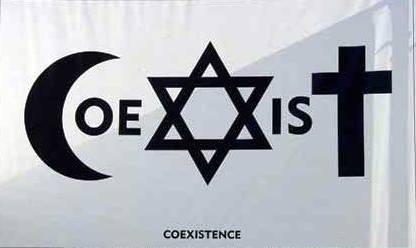© Josh Sager – November 2012
While Americans often like to think of ourselves as multicultural and free of any religious biases, this is not always the case—oftentimes, religions are treated differently in discussions of public policy based upon the biases of those speaking. In our culture, some religions are treated with more respect than others, and are able to get away with far more in the way of controlling public policy.
The majority of the United States population identifies as some variety of Christian and there is an entrenched bias in favor of things that align themselves with Christianity. It is intensely unpopular in mainstream politics to be seen as attacking Christians or the Christian faith as a belief system; we see examples of this taboo in the extreme reticence that politicians have shown in attacking the tax exemptions of churches that have become obviously involved in politics. In addition to the protection afforded Christian institutions by this bias, there is a tolerance for proposals of Christian religious laws that is not present for other belief systems. Christian religious zealots regularly attempt to legislate sexual morality, abortion policy, and even the civil rights policy of the United States, but are rarely called upon their efforts.
In contrast to the bias in favor of the Christian faith, the Islamic faith has a severe negative bias attached to it within American politics. Ever since 9/11, when the “war on terror” started, many Americans have become extremely polarized against the Islamic faith and have tolerated anti-Muslim policies and activists. During the last several years, there have been many anti-Muslim hate crimes and several attempts to attack Muslim religious freedom within the United States (ex. the “Ground Zero Mosque” controversy). Such anti-Muslim policies and acts are unacceptable, but the American public has been largely silent on the subject in a way that would not happen if it were another religion being attacked.
Judaism, while not extremely relevant to policy in the United States (there are rarely attempts to insert Judaism into law or to limit Jewish religious expression), is a religion which has had a significant level of exposure in modern politics. In modern American politics, mainstream politicians are very sensitive to anti-Semitism and any perceived attacks on Jews are seen as intensely unacceptable. In many ways, this sensitivity is due to the vociferous support of Israel that is common in mainstream politics and the conflation of Israel with Judaism. No politician wants to be seen as “anti-Israel”, thus any criticism of Judaism is immediately condemned—far more so than most other religions (ex. Buddhism).
In order to illustrate the religious biases within the United States and help overcome it, I would like to ask every American to perform an internal “Religious Substitution Test” before debating about religion. To do this test, you simply need to look at the debate objectively and substitute the religions involved based upon the situation: in cases where Christians are attempting to impose their beliefs on society, substitute in Islam and imagine that it is a Muslim who is attempting to impose his religions on you. In cases where a Muslim is being discriminated against or legislatively having their religious freedoms attacked, you should substitute Judaism in the place of Islam and look at whether the attack remains acceptable.
To continue reading this article, please go to this link: http://theprogressivecynic.com/2012/11/21/the-religious-substitution-test/


No comments:
Post a Comment